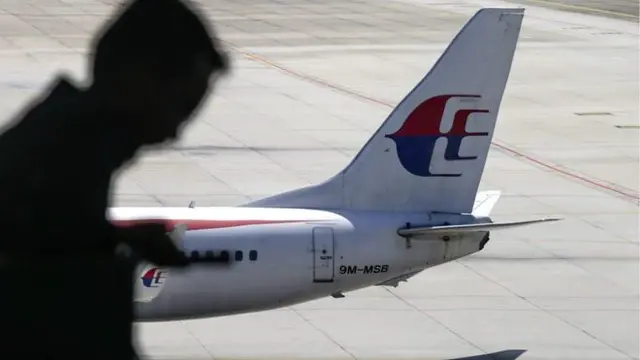Turning around Malaysia Airlines after the double tragedies of MH370 and MH17 is an "unprecedented" challenge, the firm's recently appointed chief executive has told the BBC.
Peter Bellew said the carrier was now marketing more aggressively as it tries to win back confidence in the brand.
He accepted some passengers would choose to not fly with the company.
But Mr Bellew predicted the loss-making airline would be in profit again by 2018.
And he said that a true test of its recovery would be a return to the stock market, possibly by 2019.
'Deeply personal'
Flight MH370, flying from Kuala Lumpur to Beijing, had 239 people on board when it vanished in March 2014. The Boeing 777 is presumed to have crashed into the southern Indian Ocean after veering off course.
Then in June, all 298 passengers and crew on MH17 died when the Boeing 777-200, en route from Amsterdam to Kuala Lumpar, crashed in eastern Ukraine after being shot down as it passed over the war-torn country.
Many had not expected Malaysia Airlines to stay in business after the disasters, and passengers deserted them in droves.
"For ourselves and the staff here its obviously deeply personal so day-to-day it never leaves," Mr Mallew said in an interview with the BBC World Service.
"But to be able to survive two immense tragedies like that, that takes some backbone, that's not normally something you'd have to deal with.
"Certainly in aviation its unprecedented what we're having to do here. I can't think of a business in my lifetime... that's come back from the depths of the difficulties."
Aggressive approach
Mr Bellew joined the airline in late June 2016, when Christoph Mueller left suddenly.
And he said a top priority was to try and win back passengers and sell more tickets.
"I think there's certain people who may never travel with us again, but the bulk of people would consider it now," he said.
"We were quite quiet on the sales and marketing front and generally on the commercial side we were shy and hiding. So the last four months we've come out very aggressively."
He said that the airline needed to focus on the rise of travel among Chinese people, and that it would move quickly to profit from that "megatrend".
But he conceded that Asia was a crowded market place and his airline had its work cut out, especially within Malaysia.
"The bit that we're struggling with is amazingly low fares in the domestic market which for consumers is super but it makes it very difficult for airlines."
The former executive at Irish budget carrier Ryanair said another priority was focussing on a return to profit, including "the very boring discipline" of controlling costs.
"We're being quite aggressive with suppliers, sometimes quite rude and ignorant maybe in the way we are approaching negotiations now which isn't always the Asian way."
Analysis by Rob Young, BBC Business Presenter in Kuala Lumpur
Malaysians seem to have a deep affection for Malaysia Airlines.
But emotion only goes so far. There are many low cost carriers putting pressure on air fares, not least the nimble Air Asia, also based in Kuala Lumpur.
That's great news for the flying public, not so great for a once-bloated loss-making airline.
Much of the fat at Malaysia has been trimmed and Peter Bellew hopes the financial know-how he brings from the European no-frills airline Ryanair, will make that happen.
His arrival seems to have brought a new financial lease of life. But for many potential passengers it will always be associated with the two tragedies of 2014.
(BBC)
 简体中文
简体中文

